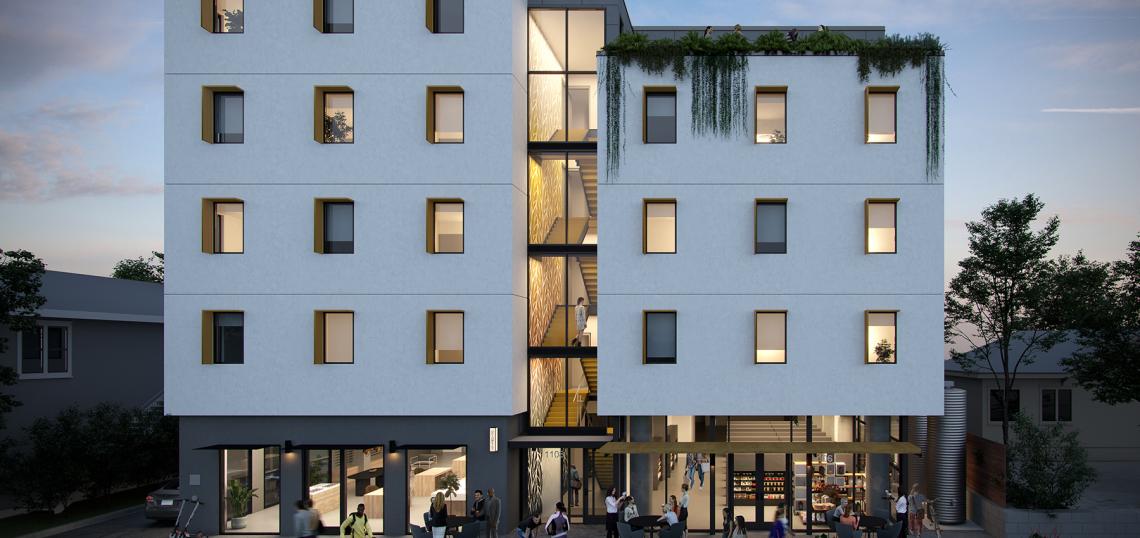For years, Austin urbanists, environmentalists, flaneurs, and people who want Earth to continue to support human life have been calling for the elimination—or a vast reduction, at very least—in the number of gas-powered vehicles on the city's streets. Downtown, which has evolved to offer a high level of walkability for its residents over the years, would seem a logical place to proceed with that project. Despite the fact that the city waived parking requirements for mixed-use buildings there in 2013, along with some notable false starts (RIP, the Avenue), the area has yet to see a new mixed-use building with no off-street parking be completed.
The problem, according to developer Jen Weaver of Weaver Buildings, lies in more than just zoning. Turns out that obtaining financing for such projects, especially during a global pandemic, proves to be a major hurdle in the process.
Weaver's company is building Capitol Quarters, a 45,000-square-foot, mixed-use project underway at 1108 Nueces Street. The five-story structure, which replaces a smaller office building that was on the site, will offer 30 three-bedroom, two-bathroom apartments, ground-floor retail, and no onsite parking facilities.
Capitol Quarters was originally announced as a co-living project in fall 2019. A few months later, the pandemic hit. Weaver's team reinvented the building as a multifamily project and spent the next year finding new financing. Weaver terminated the lease with the co-living group in August 2020.
"Capital markets wholly changed with the pandemic," Weaver wrote in a recent email. "Traditional lenders were required to prioritize [Paycheck Protection Program] loans. ... New construction loans were the last priority for traditional lenders, and ... they were certainly not going to new asset types, like co-living."
"We pushed the building lot lines and worked through numerous site and development challenges with the City and team," said Shelly Mitchell, vice-president at Pape Dawson and leader of the entitlement effort, in a press statement. Those efforts, along with being able waive offsite-parking fees the city usually requires and skip the upscale/expensive amenities of luxury-priced condos, enabled the team to keep rent costs at approximately those of the previously planned co-living unit—about $1,400 per bedroom, depending on the cost of utilites and things such as wifi access included in the rent.
The building will feature battery-powered backup for its electrical systems rather than generators run on fossil fuels, according to the statement, and seeks certification from Austin's Green Energy Building program as well as from global programs Fitwel and Green Seal.
Capitol Quarters is intended for middle-income workers who want to live downtown but are priced out of the plethora of luxury residential buildings in the area, said Weaver. Renters can also save money by not owning cars, as well—the building will feature covered, locked bicycle parking and is close to Shoal Creek and Lady Bird Lake trails. It also has planned spaces for gathering on both the ground floor and rooftop, along with landscaping and artwork to enhance residents' at-home experience—something that has become glaringly important, even essential, in the past year.







